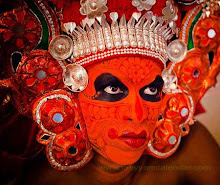ARAKKAL PALACE, KANNUR
Arakkal Palace holds the credit of being the one and only royal
residence of the Arakkal Royal Family in Kerala. Arakkal Palace and
Kannur Fort stand in close proximity to each other, singing the lore of
the ancient and medieval times. In 2005, the palace was converted into a
museum. Now, it is preserved by the Department of Archaeology and
Kerala Tourism. The fort stands till now as the witness of the glorious
years which have been a part of the rich history of Kerala. Arakkal
Palace belonged to the Arakkal Royal family, the only Muslim royal
family in Kerala. In 1663, Arakkal ruler also purchased St. Angelo Fort
from the Dutch. The Arakkal rulers had control over the northern coastal
region of Kerala and Lakshadweep. The Arakkal family used to accept the
eldest member of the family, irrespective of gender, as the ruler of
the province. ‘Ali Rajah’ was the name given to the male rulers of the
Arakkal family, while their female counterparts were called ‘Arakkal
Beevis’. By 1870, the British seized the fort and built their military
base on the Malabar Coast. They also carried the construction of a
tunnel connecting the Fort, with Thalassery Fort, located at a distance
of 21 km from Kannur Fort. This tunnel used to come in handy at the time
when the enemies used to attack. The major residents were transported
to another location through this tunnel.
Arakkal Palace is constructed in the traditional Keralite manner. It holds resemblance with other monuments in Kerala. The upper floor of the palace has large halls, with neat wooden floors. The windows are double shuttered with colored glass panes. The palace still owned by the Arakkal family Trust, but it is preserved and maintained by the Archaeological Survey of India. The durbar hall section of the palace houses an elaborate museum. Dedicated to the Arakkal family, it exhibits various credible belongings and artifacts of the royal family.
Arakkal Palace is constructed in the traditional Keralite manner. It holds resemblance with other monuments in Kerala. The upper floor of the palace has large halls, with neat wooden floors. The windows are double shuttered with colored glass panes. The palace still owned by the Arakkal family Trust, but it is preserved and maintained by the Archaeological Survey of India. The durbar hall section of the palace houses an elaborate museum. Dedicated to the Arakkal family, it exhibits various credible belongings and artifacts of the royal family.





No comments:
Post a Comment